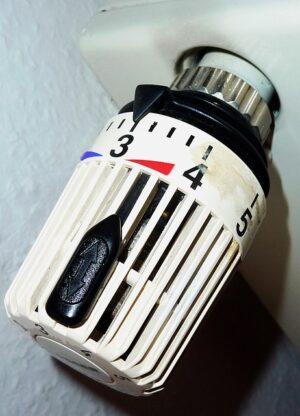Electric boilers are revolutionizing residential heating with superior energy efficiency, clean technology, and precise temperature control compared to gas or oil boilers. They offer easy maintenance, enhanced safety, and adaptable design for large properties, though installation requires careful planning and qualified professionals. Despite higher initial costs, electric boilers provide long-term savings and contribute to a greener future by reducing fuel expenses and carbon footprints.
In the pursuit of efficient residential heating solutions, high-capacity electric boilers emerge as a game-changing technology. These powerful systems are designed to cater to the heating demands of large properties, offering a robust and sustainable alternative to traditional heating methods. This article explores the key features and benefits of electric boiler systems, delving into their role, installation considerations, maintenance aspects, and cost-effectiveness for modern homes. Discover how electric boilers can revolutionize your space with advanced heating capabilities.
- Understanding High-Capacity Electric Boilers: Their Role in Large Residential Heating
- Key Features and Benefits of Electric Boiler Systems for Large Properties
- Installation, Maintenance, and Cost Considerations for Efficient Residential Heating Solutions
Understanding High-Capacity Electric Boilers: Their Role in Large Residential Heating

In the realm of residential property management, understanding the significance of efficient and robust heating solutions is paramount, especially for larger homes or apartment complexes. High-capacity electric boilers emerge as a prominent and modern answer to these demands. These boilers are designed to deliver substantial heating capabilities, catering to the needs of extensive living spaces. Their role in large residential properties goes beyond mere comfort; it ensures optimal energy efficiency and cost savings.
Electric boilers offer a clean and eco-friendly approach to home heating, with electric heating systems providing consistent and precise temperature control. Unlike traditional boiler systems, residential electric boilers are renowned for their ease of maintenance and longer service lives. The technology behind these devices has advanced significantly, making them more energy-efficient than ever, which is a crucial aspect in today’s environmentally conscious world. Electric HVAC (heating, ventilation, and air conditioning) systems are not only transforming the way we heat our homes but also contributing to a greener future.
Key Features and Benefits of Electric Boiler Systems for Large Properties

Electric boiler systems are a game-changer for large residential properties seeking efficient and clean heating solutions. These advanced technologies offer several key features that make them stand out in the market. Firstly, electric boilers are renowned for their energy efficiency; they convert a higher percentage of the input electricity into usable heat compared to traditional gas or oil boilers. This not only reduces energy costs but also makes them an environmentally friendly option, as they significantly lower carbon footprints.
Additionally, residential electric boilers provide consistent and controlled heating, ensuring every room maintains a comfortable temperature. The modular design of these boiler systems allows for easy installation and retrofitting in existing homes, making them versatile and adaptable to various property layouts. Moreover, electric heating technology offers peace of mind with its simplified maintenance requirements, eliminating the need for combustible fuel storage and reducing potential fire hazards commonly associated with traditional home heating boilers and HVAC systems.
Installation, Maintenance, and Cost Considerations for Efficient Residential Heating Solutions

The installation of a high-capacity electric boiler for large residential properties requires careful planning and consideration. Property owners should engage qualified professionals to ensure proper integration with existing electrical infrastructure, safe gas or electricity supply connections, and optimal placement for efficient heat distribution throughout the space. Electric boilers, known for their clean heating technology, offer a compelling alternative to traditional fossil fuel-based systems. They are particularly advantageous in areas where access to natural gas is limited or for homeowners aiming to reduce their carbon footprint.
Regular maintenance plays a pivotal role in ensuring the longevity and efficiency of electric boiler systems. Unlike complex central heating systems, electric boilers often have fewer moving parts, making routine servicing less intensive. However, it’s still crucial to schedule periodic inspections and cleaning to maintain optimal performance. Cost considerations for these residential electric boilers vary based on capacity, brand, and energy efficiency ratings. While the initial investment may be higher than traditional boiler systems, electric heating systems offer long-term savings through reduced fuel costs and lower maintenance expenses. Electric HVAC systems, with their energy-efficient design, contribute to a more sustainable and environmentally friendly home while providing reliable and consistent home heating boilers for residents.
High-capacity electric boilers offer a sustainable and efficient heating solution for large residential properties. By understanding their key features and benefits, as well as thoughtful installation, maintenance, and cost considerations, homeowners can harness the power of electric boiler systems to create comfortable living spaces while reducing energy consumption. Electric boilers continue to gain prominence in the pursuit of eco-friendly and effective residential heating.






